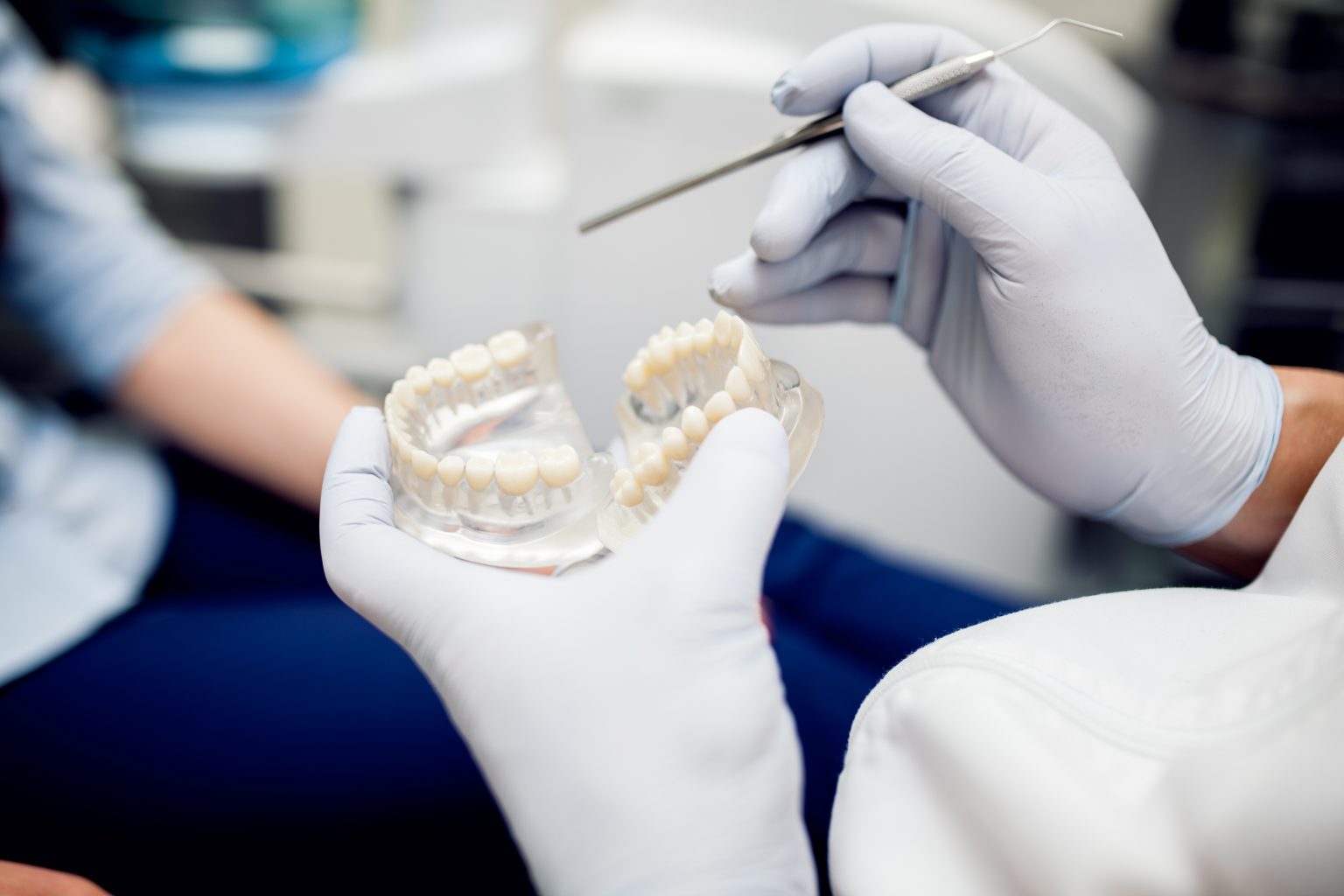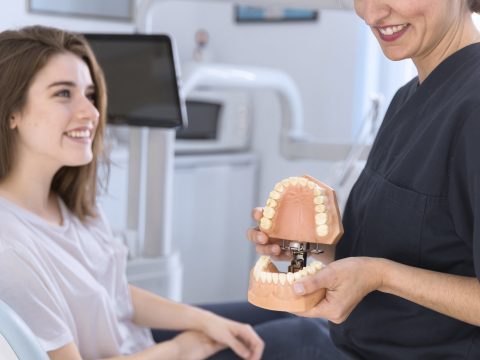A captivating smile is a universal language, and dental crowns play a crucial role in restoring and enhancing it. Whether you’re considering dental crowns in Plano or seeking options in Garland, understanding the ins and outs of this dental procedure is vital. In this comprehensive guide, we delve into the world of dental crowns, decoding the process, benefits, and considerations for those looking to transform their smiles.
Understanding Dental Crowns
Dental crowns, often referred to as caps, are protective coverings that encase a damaged or compromised tooth. These custom-made restorations serve both functional and aesthetic purposes, providing strength, durability, and a natural appearance to the treated tooth.
When Are Dental Crowns Needed?
- To Protect Weakened Teeth: Teeth that are severely decayed, weakened by large fillings, or at risk of fracturing can benefit from the added protection offered by dental crowns.
- After Root Canal Treatment: Following root canal therapy, a dental crown is often placed to restore the tooth’s structure and prevent further damage.
- To Restore Cracked or Broken Teeth: Teeth with cracks or fractures can be effectively restored with dental crowns, preventing the progression of damage.
- For Cosmetic Enhancement: Dental crowns are used in cosmetic dentistry to improve the appearance of teeth with significant discoloration, irregular shapes, or size discrepancies.
- To Support Dental Bridges: Dental crowns are utilized as anchors for dental bridges, replacing missing teeth and restoring the integrity of the dental arch.
- To Cover Dental Implants: Dental implants, serving as artificial tooth roots, are often topped with dental crowns for a natural-looking and functional replacement tooth.
Types of Dental Crowns
- Porcelain Crowns: Mimicking the translucency of natural teeth, porcelain crowns provide a highly aesthetic option. They are often recommended for front teeth and visible areas of the smile.
- Metal Crowns: These crowns are made from various metals, including gold or silver alloys. Metal crowns are known for their durability and are often chosen for back teeth.
- Porcelain-Fused-to-Metal (PFM) Crowns: Combining the strength of metal with the natural appearance of porcelain, PFM crowns are versatile and suitable for both front and back teeth.
- All-Ceramic or All-Porcelain Crowns: These crowns offer a metal-free alternative, providing excellent aesthetics and suitable for individuals with metal sensitivities.
- Zirconia Crowns: Known for their durability and biocompatibility, zirconia crowns are a popular choice for both front and back teeth.
The Dental Crown Procedure
- Consultation and Examination: The journey begins with a thorough examination and consultation with a dentist. X-rays may be taken to assess the condition of the tooth and surrounding structures.
- Tooth Preparation: Before placing the crown, the tooth is prepared by removing a portion of its outer structure. This ensures a proper fit for the crown.
- Impressions: An impression of the prepared tooth is taken, serving as a mold for crafting the custom dental crown. Temporary crowns may be placed to protect the tooth while the permanent crown is being fabricated.
- Crown Fabrication: Using the impressions, the dental laboratory creates a custom crown that matches the color, size, and shape of the natural tooth.
- Crown Placement: Once the permanent crown is ready, it is cemented onto the prepared tooth. The dentist ensures a proper fit, bite alignment, and aesthetic harmony with adjacent teeth.
- Final Adjustments: The dentist makes any necessary adjustments to ensure the patient’s comfort and the functionality of the bite.
Benefits of Dental Crowns
- Restoration of Function: Dental crowns restore the functionality of compromised teeth, allowing patients to bite and chew with ease.
- Enhanced Aesthetics: Crowns improve the appearance of damaged or discolored teeth, blending seamlessly with the natural teeth for a harmonious smile.
- Protection of Weakened Teeth: Crowns provide a protective shield for weakened teeth, preventing further damage and potential fractures.
- Longevity and Durability: Well-maintained dental crowns can last for many years, offering a durable and reliable solution for tooth restoration.
- Improved Confidence: A restored and aesthetically pleasing smile can boost confidence and positively impact social and professional interactions.
Caring for Dental Crowns
- Maintain Good Oral Hygiene: Brush and floss regularly to prevent plaque buildup and maintain the health of your natural teeth and gums.
- Avoid Chewing Hard Objects: While dental crowns are durable, avoiding habits like chewing on ice or using teeth as tools can help prevent potential damage.
- Attend Regular Check-ups: Schedule routine dental check-ups to monitor the condition of your dental crowns and address any concerns promptly.
- Protect Against Teeth Grinding: If you grind your teeth, consider using a nightguard to protect both natural teeth and dental crowns from excessive wear.
Choosing a Dentist for Dental Crowns in Plano or Dental Crows in Garland
When seeking dental crowns, selecting a qualified and experienced dentist is crucial. Consider the following factors:
- Credentials and Experience: Choose a dentist with expertise in restorative dentistry and a proven track record of successful crown placements.
- Technology and Materials: Opt for a dental practice that utilizes advanced technology and high-quality materials for crown fabrication, ensuring optimal results.
- Patient Reviews: Read reviews from other patients to gauge their satisfaction with the dentist’s services and the longevity of their dental crowns.
- Communication and Consultation: A dentist who takes the time to explain the dental crown procedure, address your concerns, and discuss your goals is essential for a positive experience.
- Financial Considerations: Inquire about the cost of dental crowns, payment options, and whether the dental practice accepts insurance to plan accordingly.
Conclusion: A Crowned Smile Awaits
Dental crowns stand as a testament to the artistry and science of modern dentistry, offering a transformative solution for individuals in Plano and Garland seeking to restore and enhance their smiles. Whether you’re addressing functional issues or aiming for cosmetic improvement, the versatility of dental crowns makes them a go-to option for tooth restoration. As you consider the possibilities offered by dental crowns, remember that each smile is unique. Consult with a skilled dentist, discuss your goals, and embark on a journey to a crowned smile that not only radiates confidence but also reflects the expertise of those dedicated to your oral health and well-being.




